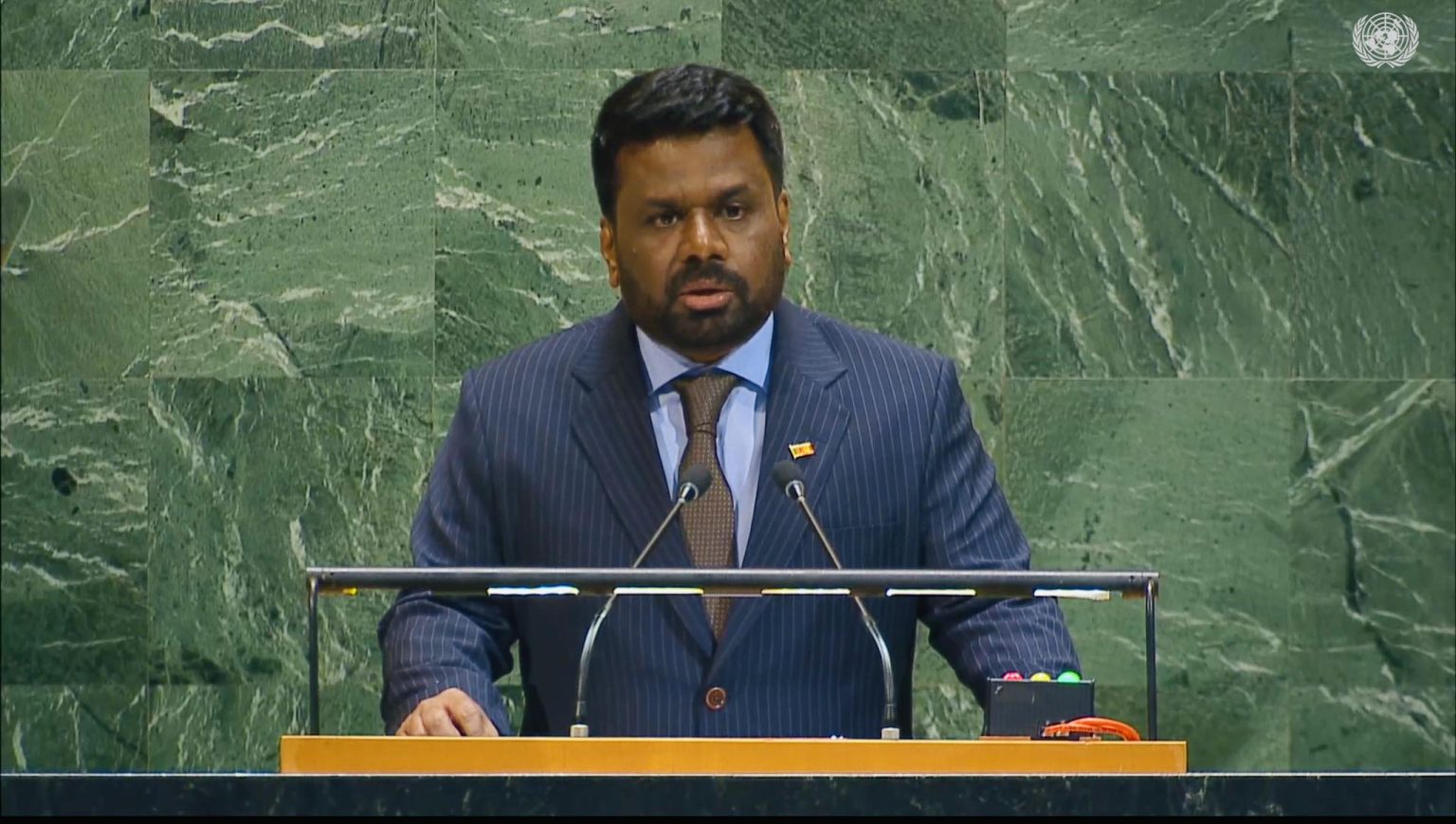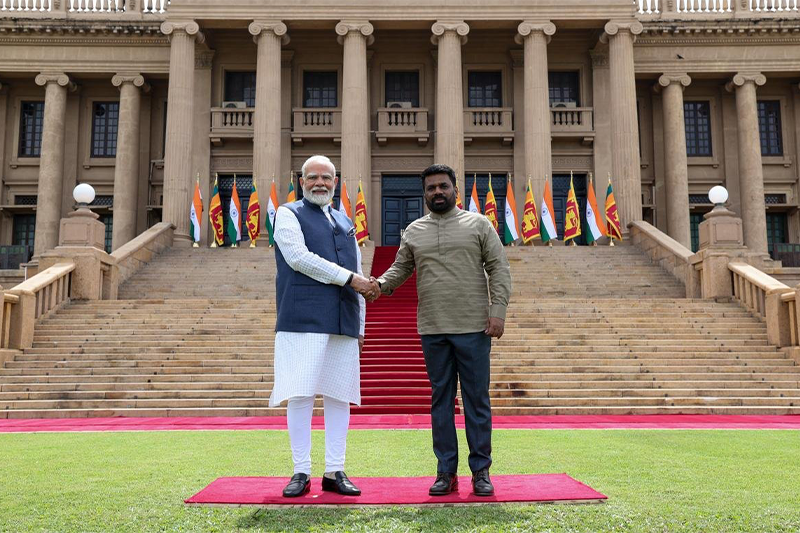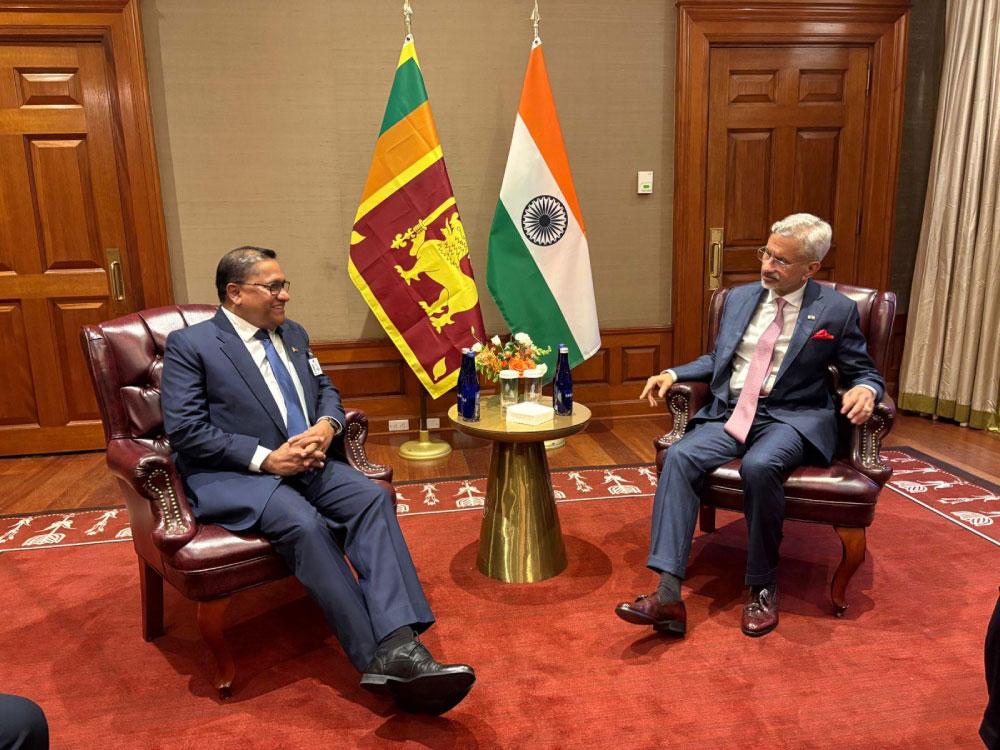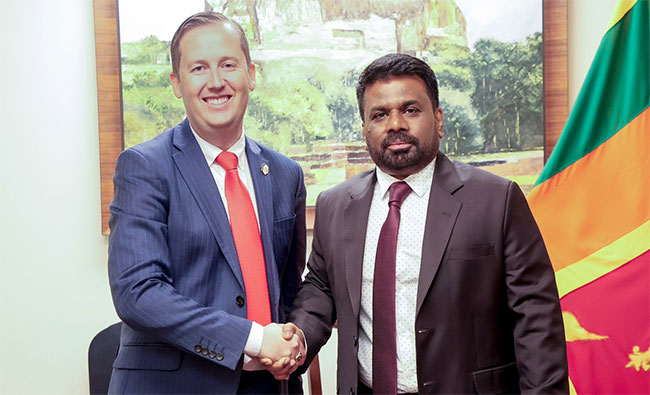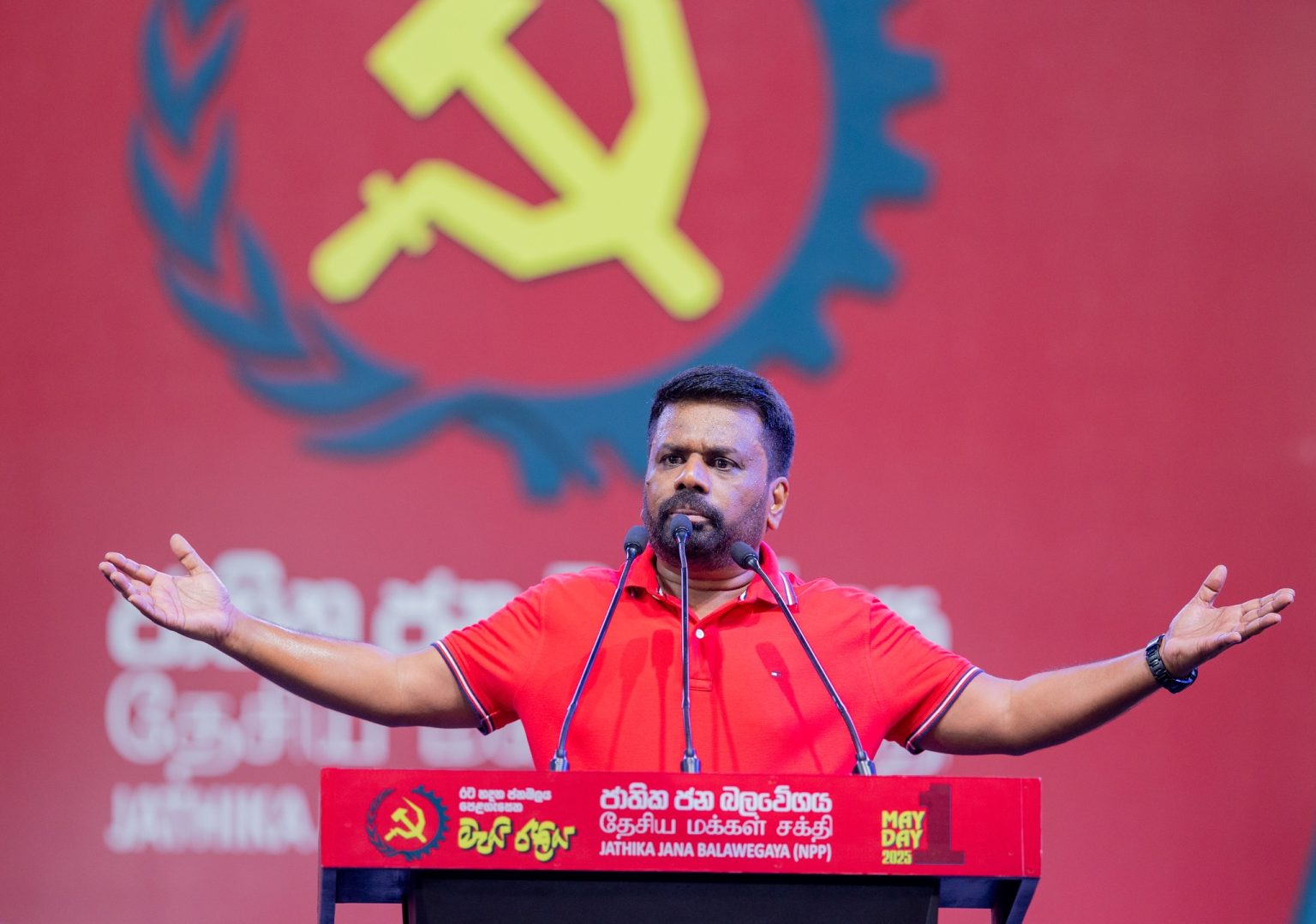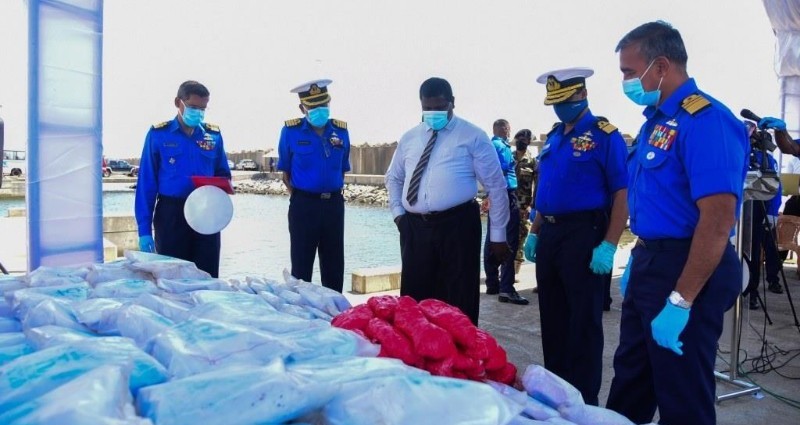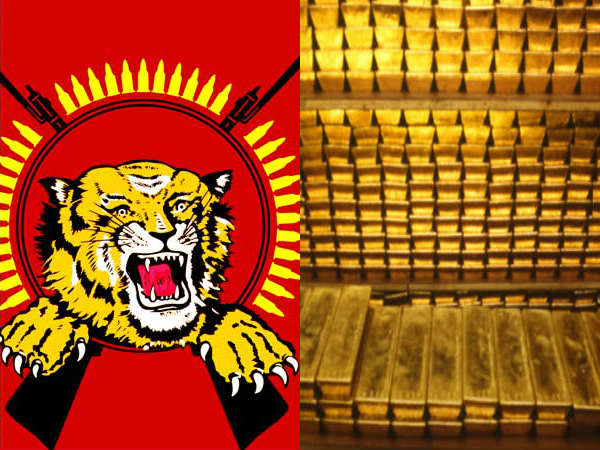Full speech – President Addresses 80th Session of UN General Assembly
• Let us commit ourselves to creating a safe world for future generations
– President urged world leaders
President Anura Kumara Dissanayake, addressing the 80th session of the United Nations General Assembly, urged world leaders to commit themselves wholeheartedly to building a safe world for future generations. The President stressed that nations must walk hand in hand, not apart.
Speaking at the UN Headquarters in New York on the 25th morning Sri Lanka time, the President expressed deep concern over the ongoing humanitarian catastrophe in the Gaza Strip. He called for an immediate ceasefire, the unhindered delivery of humanitarian aid and the release of hostages by all parties, in line with agreements reached by the United Nations and other stakeholders. He further emphasized that strong international pressure must be applied to halt the continuing violence and killings.
Furthermore, President Dissanayake emphasized in his address the issue of poverty, which has led to numerous global challenges. He asserted that both inequality and poverty ought to be regarded as a worldwide catastrophe that requires urgent attention.
The President emphasized the constructive measures implemented by Sri Lanka to address the global drug issue, a multifaceted challenge impacting millions worldwide. He urged world leaders to collaborate in advancing the global initiative aimed at eradicating the drug menace, which endangers global health, democracy, politics and the overall well-being of society. He proposed stricter enforcement of laws against traffickers, limiting their ability to migrate across borders and establishing more rehabilitation centers for drug addicts.
Turning to corruption, President Dissanayake described it as a destructive force that undermines development, democracy and social well-being while perpetuating poverty. He noted that Sri Lanka has already embarked on this difficult but essential fight for the sake of future generations and urged all countries to embed the culture of anti-corruption within their governance.
Concluding, the President said that the Sri Lankan people, who have chosen the path of light over darkness, are united around the vision of “A Thriving Nation – A Beautiful Life.” He explained that this historic goal is being advanced step by step through corruption-free and ethical governance, poverty eradication, digitalization and environmental sustainability, with equal emphasis on strengthening education and healthcare.
The full speech delivered by President Anura Kumara Dissanayake at the 80th Session of the United Nations General Assembly is as follows:
Madam President, Mr. General Secretary, honoured invitees and distinguished delegates,
Allow me, Madame Annalena Baerbock, representing the beautiful country of Germany, to begin my speech by offering my warmest congratulations to you on being elected the President of the 80th session of this organisation, formed with the noble aim of bringing about a just and lasting peace among the nations of the world.
I would also like to use this opportunity to express my country’s appreciation to His Excellency Philemon Young for the exceptional leadership he provided during the 79th session. We are gathered here today to plan the future path of this organisation, which has worked tirelessly for eight decades to bring about a world of peace.
It is my honour to address this August Assembly for the first time as the President of Sri Lanka.
As representatives of nations, we all bear the responsibility to work towards fulfilling the aspirations of our people. The decisions we make now will impact people across the world and play a decisive role in the future of this planet, our common home.
Distinguished delegates,
Our decisions will have a very important impact on our future. Poverty, a tragedy as old as human civilisation, has accompanied humankind on its journey through time. For centuries, countries across the world have faced this painful and relentless struggle. Poverty and problems stemming from it are also casting an oppressive shadow on our future. This assembly must pay special attention to eradicate extreme poverty. I believe our conscience dictates us to do so.
Distinguished delegates,
For centuries, many countries in the world are struggling against poverty. Poverty is a terrible enemy with many faces. Even as we gather here in the countries we represent, including in my own, children are suffering from hunger. A child’s right to education is an internationally accepted fundamental right.
This right is enshrined in the constitutions of most of our nations. Yet, across the world, poverty has denied this right to hundreds of thousands of children. In a world which boasts of its technological advances, how can there be children without access to education? Education is the foundation of every great nation.
It is the most vital factor deciding one’s future. We firmly believe that investment in education is an investment in global progress. Many developing countries are constrained in their struggle against poverty by indebtedness.
Low-income countries allocate twice as much on debt servicing than on education or healthcare.
Our people and our countries are caught in debt traps. The 2030 Agenda for Sustainable Development pledges to leave no one behind and to reach the last first. The Agenda acknowledges the most critical challenge before the world is the challenge to end poverty.
I would also like to recall the decisions taken at the Global Summit for Social Development in Copenhagen in 1995.
However, wars and political upheavals and the COVID pandemic have obstructed the fulfilment of these hopeful agendas. I propose to you that the time has come to accept that inequality and poverty are a global catastrophe and we should act accordingly.
Madam President, esteemed guests,
Drugs and organised crimes linked to drugs have become a serious concern to this world. This has been acknowledged in the World Drug Report 2025 published by the United Nations Office on Drugs and Crime.
The drug problem is a complex issue affecting millions of people globally. The market for drugs and the related criminal organisations are creating issues globally. Drug cartels are turning entire states into their hunting grounds. They pose a major threat to global health and politics and eventually global well-being as well.
While Sri Lanka is taking effective steps to address this challenge, I respectfully request all of you to join in the effort to implement the global agenda on drugs and crime.
I bring to your notice the need to implement the law strictly against these drug traffickers and prevent drug traffickers from taking refuge in our countries and also to set up rehabilitation centres for rehabilitation purposes.
Madam President, honoured guests,
We regard corruption as an epidemic causing widespread harm to broad swathes of society. We believe corruption to be an obstruction for development, a decisive threat to democracy and global well-being and also a cause for poverty. Let me remind you that fighting corruption is dangerous, but not fighting corruption is even more dangerous.
The Universal Declaration of Human Rights of 1948 was a remarkable victory for the people of the world. Civilisational achievements were never accomplished overnight. They were all results of unwavering efforts and sacrifices. And the struggle against corruption is also a difficult one. We must take the necessary steps here. The first step may be difficult, but if the courageous first step we take is correct, a thousand steps will follow. That is what I believe.
Madam President, delegates, be brave. All the rest will follow.
Sri Javaharlal Nehru has once stated so. I represent a small island of nearly 22 million people. Sri Lanka’s population is about 0.30 of the global population. It is true that we are small in size and in numbers, yet we have begun the struggle against corruption for the future generations of our country and the world. I propose that an integral part of the culture of all UN member countries should be to fight against corruption.
Madam President,
I feel confident that all of you will join me in condemning war. There is no nation in the world that desires a war. The result of a war is a tragedy wherever it happens. We all know that. Even now, many countries of the world are experiencing the pain of that tragedy. As a country that lived through a three-decade war, we know well the futility of war. No one who sees the pain and the suffering of parents, spouses and children of the victims of war would never dream of another war.
We have witnessed these painful sights with our own eyes. Even as suffering caused by conflict has reached unprecedented levels, the international community has become reduced to bystanders.
Opportunistic power politics has turned the lives of children and innocent civilians into a game. No one has the right to inflict pain and suffering on another to enhance one’s own power. The duty of a ruler is not to destroy lives but to protect them.
We are deeply distressed by the ongoing catastrophe in the Gaza Strip. Gaza has been turned into an open prison full of pain and suffering, echoing with the cries of children and the innocent civilians. The United Nations Organisation and all related parties must work towards an immediate ceasefire, enable adequate humanitarian aid to these areas and to ensure the release of hostages of all parties. We recognise the Palestinian people’s inalienable right to their own state.
We also believe that legal, security and humanitarian concerns of Israel and Palestinian people need to be acknowledged.
Sri Lanka reiterates the importance of early implementation of the UN General Assembly resolutions regarding a two-state solution on the basis of the 1967 borders. The time has come for the international community to stop being a mere spectator and to move decisively to end the suffering of millions.
Religious extremism and racism have been major causes of wars and conflicts, bringing suffering to millions of people. Although a century has passed since the abolition of slavery, the poison of racism still lingers in many places. Extremist and racist ideas are as deadly as epidemics. We must ask ourselves how these extremist and racist ideas survive like sparks under the ashes in a world that has witnessed so many advances on so many fronts.
I believe that we must awaken our conscience to oppose racism and religious extremism in protection of human rights and freedoms. We must be brave enough to speak up for peace. We must not be afraid to speak up against war. We must be afraid to speak up for war. In a world where millions of children die of hunger, we spend millions on weapons. When tens of millions die of inadequate health facilities, hundreds of millions are spent on futile wars. When hundreds of thousands of children are denied the right to an education, millions are spent on invading another’s land.
If every inch of this world can be turned into peaceful communities, what a wonderful world would it be. As a country that suffered the horrors of war for decades, where families still weep in remembrance of their loved ones, we have a duty to make that heartfelt proposal.
I would like to remind you that at the last election, the people of Sri Lanka decided in favour of a centuries-old dream. A legislature has been established according to that decision, reflecting the ethnic and religious diversity of the country.
A parliament has been established with women and other marginalised communities in representation. We believe that the duty of legislatures is to develop the country and the people, not to develop themselves. And we have established that idea.
Madam President, distinguished guests,
Our people have chosen light over darkness. They have given their approval to realise the vision of a thriving nation, a beautiful life. To fulfil this historic mandate, we have focused on establishing non-corrupt administration, poverty eradication, and digitalisation. And we have also placed great emphasis on education health as well. We are moving towards these goals step by step. Digital democracy is one of our aims.
Ensuring that every person and every country can enjoy the opportunities of the digital age is a global challenge. If we succeed in our task, we will be able to open doors to technology, accelerate development, and to strengthen governance. If we fail, technology will turn into one more force, worsening inequality, insecurity, and injustice.
The digital gap between states that can and cannot establish access to digital tools is clear. An even greater gap is being created in relation to artificial intelligence. Sri Lanka and many other developing nations in Asia and also many other nations are facing challenges in using AI as a development tool due to the inadequate infrastructure facilities.
Madam President, distinguished delegates,
I ask the international community to work together and we have to develop a dignified society, a dignified world. I present this August assembly a proposal to set up a neutral sovereign Artificial Intelligence zone. We must build a new and better world, a world which represents the dignity of humankind. You as members of this assembly must be the architects of that better world.
As President Harry Truman stated on the occasion of founding the United Nations, in your hands rests our future. We must not act in fear or under compulsion, but with hope for a better and more secure world.
Today we must commit ourselves not to lead the world to another disaster, but to make it a better place for the next generation.
I have dreams and expectations for my country. Similarly, you have dreams and expectations for your countries. My dream is to ensure that my people are rich and they have happiness. I believe that you too have such dreams. We must try to achieve these dreams not in competition with each other, but by working arm in arm, peace, dignity, and equality on a healthy planet. That is the motto of the United Nations organisation. Therefore, let us become the true healers of the world.
Thank you very much.
President’s Media Division (PMD)
25.09.2025


